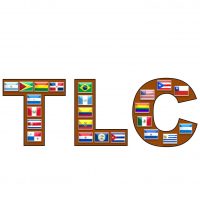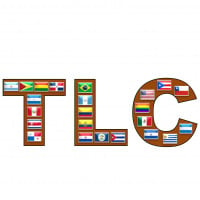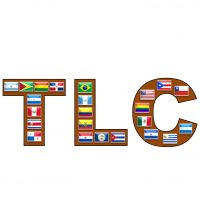
The Latino Commission
Drug Rehab Center in South San Francisco, California
- Substance Abuse
- Opioid Addiction
- Drug Addiction
- Alcoholism
The Latino Commission in South San Francisco, CA provides a range of treatment options for individuals dealing with alcohol, opioid, and other substance abuse issues, including drug rehabilitation, intensive outpatient, outpatient, and sober-living/half-way services.
Multiple patients have reported The Latino Commission as permanently closed.
Research other rehabs in South San Francisco, California, or get help finding an open facility.
Our experts will find you an alternative facility.
(888) 674-0062 24/7 Free, Confidential, Expert HotlineAbout This California Facility
The Latino Commission in South San Francisco, California is a well-established treatment facility that specializes in helping individuals recover from alcoholism, opioid addiction, substance abuse, and drug addiction. At this facility, individuals seeking to get sober have access to various levels of care, including drug rehab, intensive outpatient programs, outpatient treatments, sober-living, and residential programs. With a focus on providing effective and comprehensive treatment options, The Latino Commission is dedicated to helping individuals overcome their addiction and achieve lasting recovery.
The services provided by The Latino Commission encompass a wide range of evidence-based treatment methods and approaches for addiction and substance abuse. They offer personalized treatment plans tailored to the unique needs of each individual, ensuring a holistic approach to recovery. Some of the treatment methods utilized at The Latino Commission include individual and group therapy sessions, cognitive-behavioral therapy (CBT), motivational interviewing, relapse prevention techniques, and family therapy. These approaches aim to address the underlying causes of addiction, promote self-awareness, develop coping strategies, and foster a supportive environment for long-term recovery. The facility's commitment to culturally responsive care ensures that individuals from the Latino community receive specialized support that respects their cultural beliefs and values.
Genders
Ages
Modality
Additional
Conditions and Issues Treated
Substance Abuse Treatment is important when getting sober, as it helps addicts learn the skills they need to live a clean life. There are many different kinds of recovery treatment, including medication-assisted therapy, behavioral therapeutic approaches and self-help groups, as well as counseling.
Opioid abuse has become a national epidemic in the last decade. The US has one of the world’s highest rates of opioid use and abuse, as well as opioid-related deaths. Opioids are classified as Schedule II-IV controlled substances in the US due to their high potential for abuse.
Oxycodone, hydrocodone, methadone, and fentanyl are the most common Opioids and are commonly prescribed to treat pain. Tolerance to opioids develops over time, making life difficult, if not impossible, without them. Opioid users often obtain the drugs illegally. They can be drug dealers, friends, or family members who do not have valid prescriptions.
The desire for a more intense high than prescription opioids can quickly lead to heroin use. Heroin users are more prone to illness and death due to the high risk of overdose.
Many opioid addicts who seek treatment believe that the only way to overcome their addiction is through medical detox and long-term drug addiction rehab. To help patients wean off their addiction and reduce the risk of overdose, medication-assisted therapy (MAT) involves prescribing a replacement opioid. Doctors use MAT in conjunction with other anti-craving medications to help patients maintain recovery. Due to the high risk of relapse, MAT is often combined with individual and group counseling and social support programs.
Levels of Care Offered at The Latino Commission
This center offers a variety of custom treatment tailored to individual recovery. Currently available are Drug Rehab, Intensive Outpatient, Outpatient, Residential, Sober-Living / Half-Way, with additional therapies available as listed below.
Intensive outpatient treatment is a form of addiction care that allows patients to continue living at home while undergoing treatment. This type of care is appropriate for patients who have been treated in residential treatment programs. Intensive outpatient programs include regular visits to the facility providing therapy, and patients gradually return to their routine life. IOP benefits most when patients have a supportive family member or friend to help them recover.
The first step to getting into an intensive outpatient program is to attend a detoxification facility. Detoxification facilities are designed to remove substances from the body safely. The patient will attend sessions designed to help them understand their addiction and its impact on their lives. While in an intensive outpatient program, therapy sessions are scheduled three to five times per week, with the patient attending no more than two sessions in one day.
An outpatient treatment program is set up to help with alcohol or drug addiction or a co-occurring disorder. The patient must attend the facility for their therapy and other programs but can return home each night.
The frequency of mandatory attendance decreases after much of The Latino Commission‘s program is complete.
Outpatient treatment is a recovery approach that allows recovering addicts to live at home while getting rehab for addiction
An outpatient can include day treatments which include attending group sessions one hour per week. A person living in an outpatient environment may be allowed the opportunity to work full time if they choose to and continue studies without interruption from drugs/alcohol.
Outpatient treatment is an option for people who want to maintain their careers and families. Outpatients live at home but attend treatment such as individual counseling, group counseling, or twelve-step meetings during the day.
Sober Living Homes are used in drug rehab to help former addicts maintain sobriety. The residents are provided with a safe and supportive environment to learn how to live a sober life. They also provide them with opportunities for exercise, many of which encourage learning coping mechanisms that will be helpful later on.
Residential treatment programs are those that offer housing and meals in addition to substance abuse treatment. Rehab facilities that offer residential treatment allow patients to focus solely on recovery, in an environment totally separate from their lives. Some rehab centers specialize in short-term residential treatment (a few days to a week or two), while others solely provide treatment on a long-term basis (several weeks to months). Some offer both, and tailor treatment to the patient’s individual requirements.
Therapies & Programs
At The Latino Commission , to learn from past mistakes and improve one’s situation, the recovering person meets individually with a therapist. The counselor or therapist will address addiction causes, triggers, mental issues, dual diagnosis, and aftercare plans during this time. This is a very intense and challenging process. Some clients find it easier to open up to someone other than family or friends who understand their struggles with addiction.
Family therapy is a crucial part of drug treatment and getting sober. It is one of the most effective ways to help addicts stay on the path to long-term sobriety. An addict’s family can play a vital part in helping them to avoid relapse. They can spot the warning signs and help them get back on track.
Payment Options Accepted
For specific insurance or payment methods please contact us.
Additional Details
Specifics, location, and helpful extra information.
South San Francisco, California 94080 Phone Number(650) 244-1444 Meta DetailsUpdated November 25, 2023
Staff Verified
Patient Reviews
There are no reviews yet. Be the first one to write one.
South San Francisco, California Addiction Information
More than 3 million of California's citizens are addicted to illegal drugs. Almost 800,000 people use hard drugs, almost 5 million use marijuana, and another 2.1 million abuse alcohol every year. Other substance abuse issues such as binge drinking and teen drug use are also common. Many illegal drugs such as cocaine, heroin, methamphetamine, and marijuana are smuggled into the state from Mexico.
8.6% of South San Francisco residents reported using illicit drugs in the past month. The most common age group to use drugs is between 18 and 25. Nearly, 24% of high school students have used prescription painkillers for non-medical reasons. Opiate use in this city is especially prevalent among young people. Each type of facility offers its unique benefits, so it is important to choose the option that best meets your needs.
Treatment in Nearby Cities
- Chula Vista, CA (459.2 mi.)
- Victorville, CA (358.2 mi.)
- Calabasas, CA (321.4 mi.)
- Lemon Grove, CA (455.8 mi.)
- Redlands, CA (384.4 mi.)
Centers near The Latino Commission
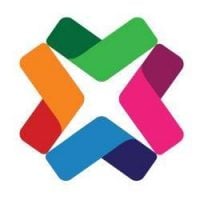

The facility name, logo and brand are the property and registered trademarks of The Latino Commission, and are being used for identification and informational purposes only. Use of these names, logos and brands shall not imply endorsement. RehabNow.org is not affiliated with or sponsored by The Latino Commission.
